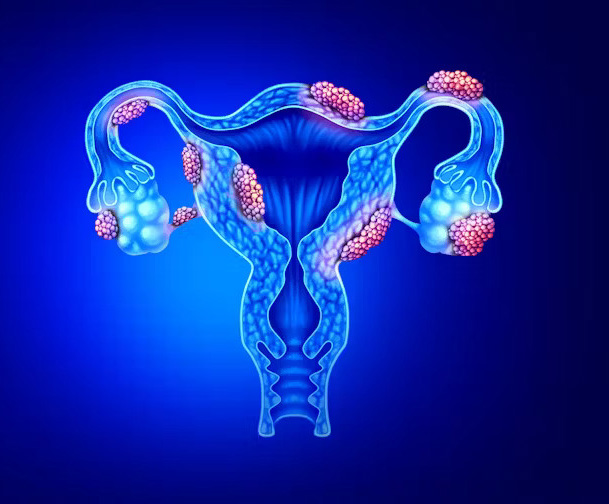In a landmark move for women’s health, French health authorities have approved national reimbursement for theZiwig Endotest, a revolutionary saliva-based diagnostic for endometriosis. This non-invasive, mRNA-driven test now enters the public healthcare system under the auspices of Article 51 of the French Social Security Financing Act, ushering in a new era of precision diagnostics for a condition long plagued by diagnostic delays and clinical ambiguity.
Developed by Ziwig, a French biotech company specialising in next-generation diagnostics, the Endotest applies high-throughput transcriptomic profiling and machine learning to detect endometriosis-specific mRNA signatures in saliva. Unlike traditional diagnostic pathways, which often depend on invasive laparoscopy, delayed imaging, and subjective pain reports , Ziwig’s approach offers:
- >95% sensitivity and specificity, based on prospective clinical trials (Chapron et al., 2022)
- Full diagnostic output from a single saliva sample
- A significant reduction in diagnostic delay, which in France and globally still averages 7 to 10 years
This is systems biology in action, capturing complex disease signals through peripheral gene expression and decoding them through artificial intelligence.
The Endotest analyses thousands of mRNA transcripts present in salivary exosomes and epithelial cells. These transcripts are compared against a curated dataset of women with and without surgically confirmed endometriosis.
Key features of the test include:
- Transcriptomic profiling: Identifying differentially expressed genes involved in inflammation, immune dysregulation, neuroangiogenesis and fibrosis — all hallmarks of endometriosis pathology.
- AI-powered classification: A proprietary machine learning algorithm integrates gene expression patterns to deliver a clear diagnostic outcome.
- Non-invasive sampling: Saliva is stable, accessible and reflective of systemic biological processes, making it ideal for decentralised diagnostics.
This approach positions Endotest within the expanding field of liquid biopsy and multi-omic diagnostics, traditionally applied in oncology, now repurposed for gynaecological disease.
Ziwig’s success was catalysed by its inclusion under Article 51 of the French Social Security Financing Act (LFSS), a progressive policy instrument designed to test and scale innovative care models and health technologies within the national system.
Introduced in 2018, Article 51 (Loi de Financement de la Sécurité Sociale) enables real-world pilots of disruptive innovations in care delivery, digital health and diagnostics. It is managed by the Ministère de la Santé et de la Prévention, Assurance Maladie, and ARS (Agences Régionales de Santé).
Projects are selected based on the potential to improve care pathways, reduce system costs and address unmet medical needs.
The Endotest was selected as an Article 51 innovation, with funding approved to enable nationwide access for 25,000 patients. The test is now available across 80 French clinical centres, including CHUs and gynaecological reference sites. A public-private consortium involving Ziwig, clinical societies and the Assurance Maladie is supporting rollout and monitoring. This recognition reflects the growing consensus that endometriosis is not simply a women’s issue, but a system-wide challenge in need of precision tools.
Endometriosis affects an estimated 10–15% of women of reproductive age, yet its diagnosis is historically fraught with delay, disbelief and medical inertia.
Barriers to diagnosis include:
- Non-specific symptoms: pelvic pain, dysmenorrhoea, infertility
- Limited imaging sensitivity, especially for deep infiltrating disease
- Invasive gold standard: diagnostic laparoscopy, often postponed or inaccessible
In contrast, molecular diagnostics like Endotest offer earlier detection, potential to stratify disease by severity and reduced need for invasive surgical investigation. The ripple effect for healthcare systems includes shorter diagnostic timelines, improved fertility outcomes, lower chronic pain and opioid use and reduced burden on tertiary care units.
France’s adoption of the Endotest may well serve as a blueprint for other EU health systems, particularly those with structured innovation frameworks such as Germany’s DiGA, Italy’s PNRR or the UK’s NICE Medical Technologies Evaluation Programme (MTEP).
Ziwig is reportedly working toward UK private sector integration and NICE submission via MTEP, engagement with clinical societies in Germany and Spain as well as expanding its platform to other gynaecological conditions.
With its fast-tracked reimbursement in France and growing international traction, Ziwig’s Endotest is redefining the standard for endometriosis diagnosis — moving from speculation and surgery to saliva and science. France has proven that when public health aligns with biotech innovation, transformative care is not only possible — it’s scalable.
📘 References
- Chapron, C. et al. (2022). Diagnostic performance of a novel salivary mRNA test for endometriosis. [Study under review]
- Femtech Insider. (2023). French Authorities Fast-Track Reimbursement for Ziwig Test
- Ministère de la Santé et de la Prévention. Article 51 Programme Overview
- Assurance Maladie. Liste des projets Article 51
- HAS (Haute Autorité de Santé). Endometriosis Clinical Guidelines
